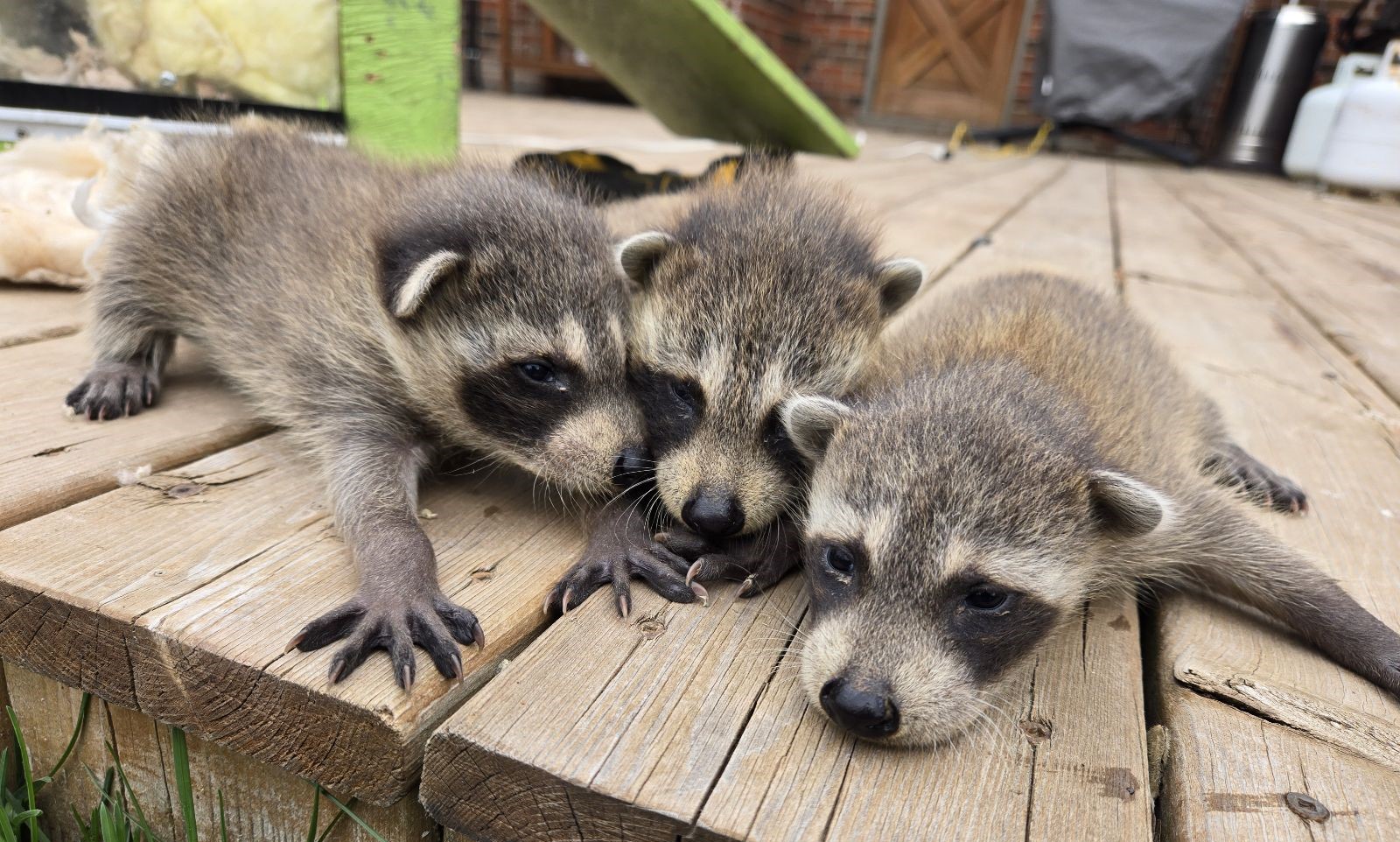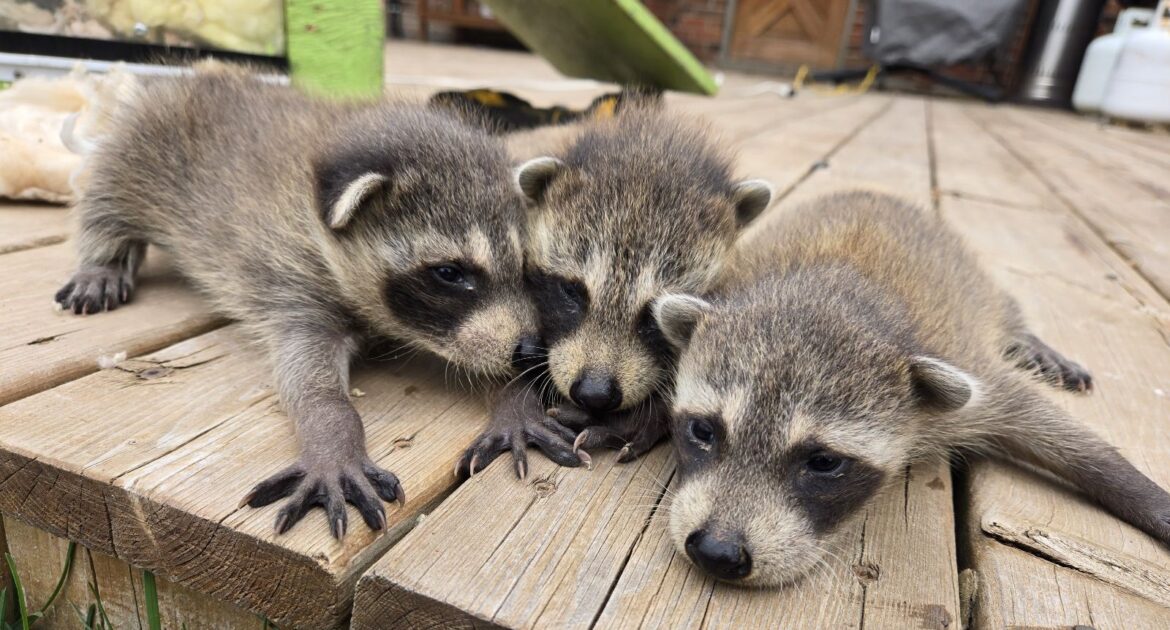For homeowners, noises in the night can be more than just unsettling—they might be a sign that you’re sharing your home with uninvited guests. Bumping, scratching, or chirping sounds could point to raccoons, particularly in your attic or walls. These nocturnal animals are known for seeking warmth and security inside homes, and identifying raccoon activity early can save you from costly damage and sleepless nights.
Continue reading as our Skedaddle team in Oakville helps you decode nighttime raccoon noises, understand what they mean, and determine the steps to address them.
Identifying Raccoon Noises in the Home
Raccoons are one of the most resourceful and crafty animals, often turning attics, chimneys, and crawl spaces into nesting areas. They are also particularly vocal, making them easier to identify compared to other animals. If you’re hearing unusual sounds at night, here’s what to listen for:
- Thumping or Running Sounds: Raccoons are medium-sized animals, and their movements often produce audible thumping, scratching, or running noises. These sounds are especially common in attics where there’s enough space for them to move around freely.
- Scratching or Rustling Noises: Scratching suggests they are climbing, digging, or tearing insulation. You might also hear rustling as the raccoons move through insulation or other materials to settle in.
- Chirping, Whining, or Crying: If baby raccoons are present, you may hear high-pitched chirps or whines. These sounds often mimic the chirping of birds, as young raccoons rely on vocal signals to communicate with their mother.
- Knocking, Squealing, or Growling: Raccoons are territorial animals and will defend their nesting areas. Growling or knocking could signal aggressive behaviour, often heard if two raccoons are competing for space.
If these sounds are consistent and occur mostly at night, raccoons might be the cause. Additionally, the location of these noises can offer clues. Attic noises suggest nesting activities, while wall scratching might indicate raccoons trying to expand their space or create new entry points.
Nighttime Raccoon Noises and What They Mean
When you hear unusual noises in your home during the night, it’s essential to consider the behaviour behind these sounds. Understanding why raccoons make these noises can help you pinpoint their activity and address the issue effectively.
- Disturbed Entry Points: Raccoons are masters of identifying weak points in a home’s exterior. If you hear scratching or clawing near your rooftop, vents, or siding, this is likely the raccoon establishing or expanding an entry point.
- Den Building: Scratching and rustling noises inside an attic or wall often indicate den preparation. Raccoons build dens to create a safe, warm environment for their young, particularly during colder months or birthing season.
- Maternal Communication: If chirping or whining sounds are present, this could mean a mother raccoon is tending to her babies. These vocalizations are used to signal hunger or discomfort.
- Aggressive Behaviour or Arguments: Knocking or growling sounds could imply raccoons are fighting, either with other raccoons or another animal. This is especially common when multiple animals compete for food or space.
- Nocturnal Foraging Sounds: Raccoons scavenge for food during the night, and if they’ve found access to your pantry, garbage, or pet food, you could hear a combination of rustling bags, clinking objects, or chewing noises.
Connecting these sounds with potential behaviours can help homeowners assess the severity of the problem.
The Impact of Identifying Raccoon Activity Early
Unaddressed raccoon activity can lead to severe consequences, including structural damage and health risks. Here are some reasons why early identification is critical:
Structural Damage
Raccoon entry often involves tearing open siding, vents, or shingles. Once inside, they may trample or destroy insulation, damage wiring, and weaken roof structures over time.
Health Concerns
Raccoons can pose health risks by carrying diseases like leptospirosis, rabies, and Baylisascaris (a dangerous parasitic roundworm found in raccoon feces). Their droppings and urine can contaminate attic insulation, creating unsanitary conditions.
Escalation of Property Damage
The longer raccoons stay in your home, the more damage they can cause. For example, a mother raccoon with kits is likely to make the space more hospitable by tearing insulation apart for bedding.
Other Animal Intrusions
Raccoon entry points can also attract other animals. Open siding or vents may become access points for birds, squirrels, or mice.
Addressing raccoon noises early and enlisting professional help can prevent further complications.
How to Handle Raccoon Sounds in the Home
If you suspect raccoon activity based on noises in your home, here are steps you can take:
- Evaluate the Sounds: Pay close attention to the type, frequency, and location of the noises. Write down when and where you hear specific sounds to identify patterns.
- Inspect Potential Entry Points: Look for signs of forced entry around roof vents, eaves, chimneys, or any areas susceptible to damage. You might notice torn siding, displaced shingles, or claw marks.
- Avoid Direct Confrontation: Do not attempt to interact with or confront raccoons directly. They can be aggressive when cornered or defending their young.
- Note Droppings or Odours: Raccoon droppings are particularly hazardous due to the potential presence of roundworm eggs. If you notice foul odours near insulation, it may indicate contamination.
- Call Professionals: Raccoon removal is exceptionally tricky, especially during baby season. Successful intervention includes not only removing the animals but also sealing entry points and cleaning up hazardous materials. Professional wildlife control ensures humane and effective handling of the situation.
Skedaddle specialists are trained to identify and address raccoon activity safely and thoroughly, so you don’t have to tackle this alone.
How Skedaddle Prevents Raccoon Infestation
At Skedaddle, our approach to raccoon prevention combines humane removal methods with proactive measures to ensure long-term protection for your home. We understand that effective wildlife management is not just about solving the immediate problem but also addressing its root causes to prevent reoccurrence.
- Use humane removal techniques to prioritize the well-being of raccoons and protect your property.
- Trained specialists employ safe, non-invasive methods to remove adult raccoons.
- Ensure baby raccoons are reunited with their mothers.
Once removal is complete, our team focuses on sealing and securing all potential entry points to prevent future access. We conduct a thorough inspection of your home to identify vulnerable areas, such as damaged vents or loose shingles, and reinforce them using durable, wildlife-proof materials.
To maintain a raccoon-free environment, we offer regular inspection services. These periodic evaluations allow us to detect early signs of wildlife activity and address them before they escalate into infestations. By combining professional expertise with a commitment to humane practices, Skedaddle ensures your home remains safe, secure, and free from raccoons for the long term.
Take Action Before Problems Escalate
Are nighttime noises keeping you awake? Decoding and identifying raccoon activity in your Oakville home is the first step to preventing costly damage and ensuring your family’s safety. Acting quickly can make all the difference in maintaining a secure and peaceful living environment.
If your home is under siege by unwelcome raccoons, leave it to us. Our team at Skedaddle has over 30 years of experience handling raccoon challenges with expertise and care. Whether it’s identifying entry points or providing a humane solution, we’re here to help. Contact us today and reclaim the quiet nights you deserve.




